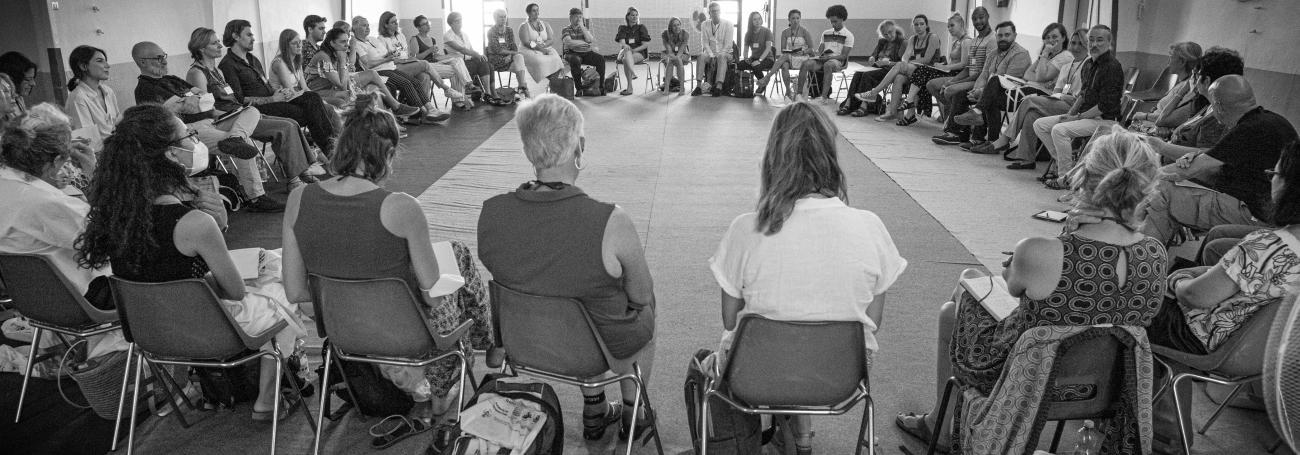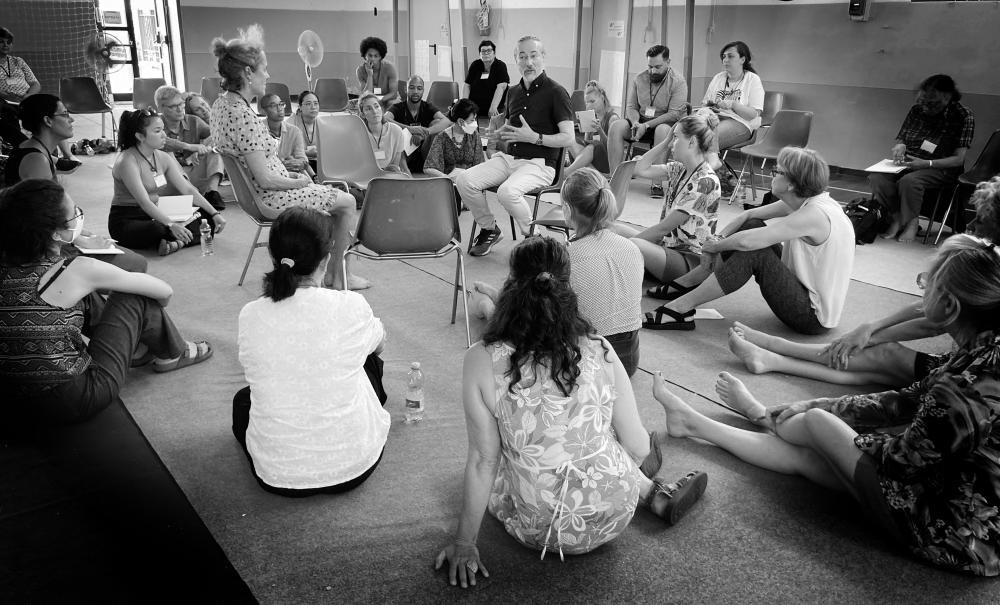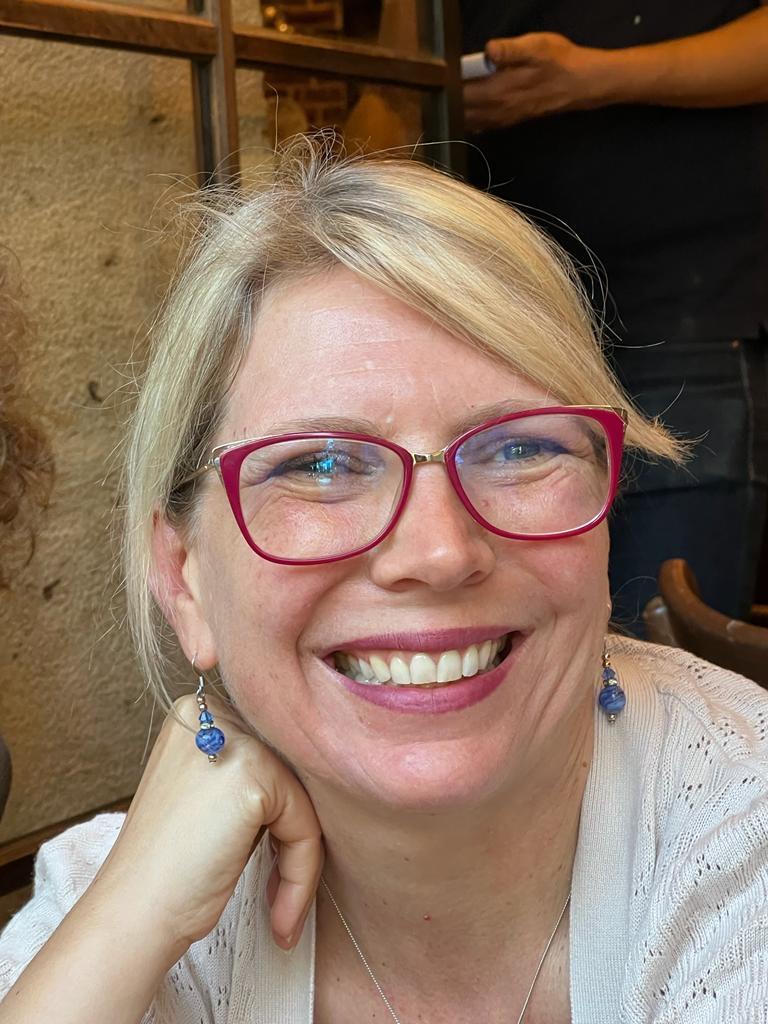Looking back on my notes and impressions of the various speakers, workshops and plenaries, two words come leaping out at me again and again – margins and support. The wisdom that is often located at the ‘margins’ and the support needed to see it, recognise it and not squash it.
During the pre-conference training and the plenary, Dominic Barter pointed out that it is “at the margins” that the “flame of restorativity” exists. This flame of restorativity consists of “the elements already present which demonstrate the possibility of dialogue”. The margins, he defines as the places more distant from the sources of structural power. Far from the centres of privilege and comfort, on the ‘borders’ of the current system, is where the elements to create a new system exist.
The danger according to Barter is that the “flame of restorativity” is interfered with when we seek to do restorative justice work with a focus on teaching rather than listening. He asks whether we serve the political imperative of restorative justice when we base our work on projects that may accidentally reproduce colonial exclusion, which may unconsciously silence other voices because we bring in restorative justice from ‘outside’ using fixed models. I found it very challenging to hear him name our tendency (my own tendency if I am totally honest) to “see situations of suffering, analyse them, look for good practice projects elsewhere, and impose that on the people suffering.”
Barter suggests another way which instead of analysing the problem and trying to fix it, might instead say: ‘Wow in this pain these people continue to survive, to interact. We want to learn from what they already know that allows them to do that’. He says that our role is to name the “genius of the local”, to care for the “flame of restorativity” which exits in every community, family, organisation. We do this by coming with curiosity rather than solutions, listening rather than speaking, asking questions rather than affirming, so that answers are endogenous, meaning they come from within.
This reminded me of an interview I had with Howard Zehr in which he said: “everything will be distorted.” Zehr told me of the reactions he had received following a session on The dangers of Restorative Justice in the early days of the movement. People had responded
with disbelief and anger – restorative justice was the answer, the solution, maybe even the ‘miracle’ they had been waiting for. They did not want to hear about how it could be distorted and even dangerous. This distortion can be conscious, however more often than not it is a slow, unseen “punitive drift”, as Barter puts it, which allows the dominant systems to strip restorative justice of its challenges to the unfair and unbalanced power dynamics and dilute its real potential. In these situations, Barter says that the risk is that restorative justice becomes, for many people, an “adjunct to the rules-based justice system with a class of trained people who know what to do.”
In my early years as a facilitator and mediator, I confess that my stance tended to be that of the ‘the one who knows’, the ‘expert’ who came to teach, speak and fix. Part of it came from a beautiful desire to contribute to people’s well-being. Part of it came from insecurity and inexperience. And also, if I am honest, from an egoic centering of myself. I SO wanted to have the solution for them. I wanted not just to be a mediator – I wanted to be ‘Super Mediator’ – faster than a speeding conflict, more powerful than a generational feud, able to leap opposed positions in a single session. My egoic dream was to come ‘save the day for truth, justice and the restorative way’ and then move on ‘up, up and away’ to other poor souls desperate for my ‘conflict salvation skills’. I turn red just thinking about it now and I am sorry for the damage I may have unconsciously done at the time.
I definitely understand what Barter was talking about when he said during his plenary “every time I try to get it right, I become authoritarian. That makes me miserable and others too.” Ouch, I recognise myself in that. What a gift to be able to speak these realities out loud in a restorative context where the focus is on learning and growth rather than blame and perfection.




